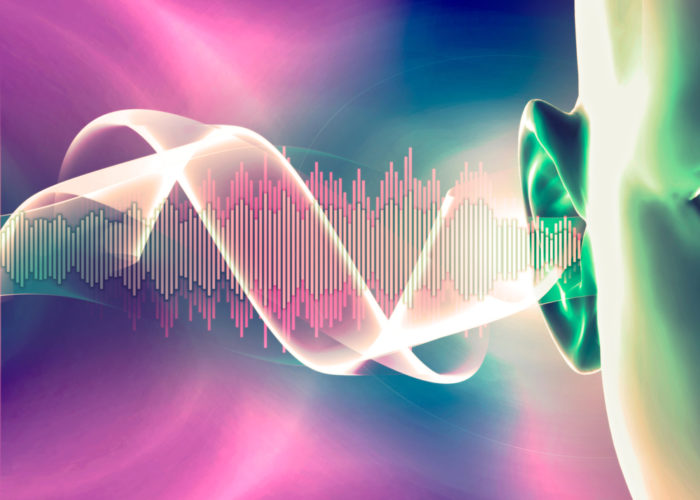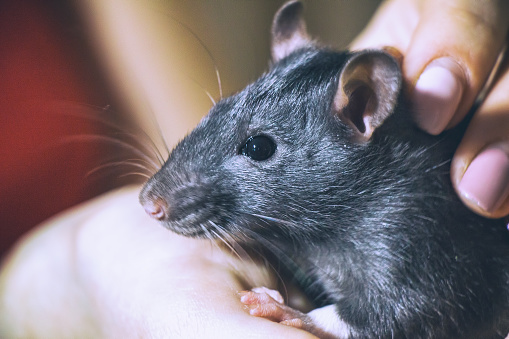
Is it possible to reverse hearing loss?
March 20th, 2023‘Ear and hearing care for all, let’s make it a reality’ was the 2023 theme at the annual World Hearing Day on March 3rd. The event was led by WHO (World Health Organisation) to build awareness of hearing loss. Great progress was made recently by researchers and hearing experts who can now answer the question as to whether hearing loss can be reversed, and it’s good news.
Is it possible to reverse hearing loss without surgery?
It is a possibility and we will explain why.
30 million people in the USA age 12 and above suffer from hearing loss and globally 20% of the human population is hard of hearing so the latest information will be encouraging for so many people.
A new study has revealed valuable insights into how hearing loss can be reversed in mammals. A previous study which took place at the University of Rochester Medical Center (URMC), conducted 5 years ago, showed that cochlear hair cells in mice could be regrown. This result was ground-breaking.
What is cochlear hair and why is it so important?
Cochlear hair in the ear detects a pitch or frequency of sound and generates nerve impulses which travel along the auditory nerve. The impulses go to the brainstem, and then the hearing centres of the brain convert them to a meaningful sound.
Some creatures can regrow cochlear hair such as reptiles, fish and birds but not mammals. A human has 16,000 cochlear hair cells in each ear and they can get easily damaged, especially with age, infection and disease.
The new study has shown the underlying mechanism that allows cochlea ear hairs to regrow in mice.
Dr Patricia White, a neuroscience professor at URMC and one of the study’s authors said, “We know from our previous work that expression of an active growth gene, called ERBB2, was able to activate the growth of new hair cells (in mammals), but we didn’t fully understand why. This new study tells us how that activation is happening—a significant advance toward the ultimate goal of generating new cochlear hair cells in mammals.”
Dr White concluded, “We plan to further investigate the phenomenon from a mechanistic perspective to determine whether it can improve auditory function after damage in mammals, that’s the ultimate goal.”
Find out more: https://hearingreview.com/inside-hearing/research/university-rochester-researchers-regrow-sensory-hair-cells
It can happen through the production of a protein…
The study compared ear cells with activated ERBB2 (abbreviated from “erythroblastic oncogene B”) receptors against normal (non-ear) cells with no activation, using single-cell RNA (Ribonucleic acid) sequencing. Researchers found that:
- Ear cells behaved like stem cells with ERBB2 genes present.
- This was because the ear cells started to produce the SPP1 (Secreted Phosphoprotein 1)
- SPP1 activates the CD44 receptor (a cell surface adhesion receptor) present in cochlear-supporting cells – these are hair cells found in the internal ear or cochlea that work to support hearing and auditory function.
- These cells are responsible for cochlear hair regeneration.
- Normal cells do not have this activity without ERBB2 genes.
The researchers noted, “Our results suggest that ectopic activation of ERBB2 signalling in cochlear supporting cells can alter the microenvironment, promoting proliferation and cell rearrangements. Together these results suggest a novel mechanism for inducing stem cell-like activity in the adult mammalian cochlea.”
Now, researchers clearly understand the underlying mechanism for regrowing cochlear ear hairs in mammals and with that information, hopefully, hearing loss will become 100% treatable without surgery and reversing hearing loss will no longer be impossible.
What causes temporary or permanent hearing loss?
Hearing loss can happen at any age. A person can be born deaf, or deafness can occur after an accident or an underlying condition, infection (labyrinthitis) or disease (Meniere’s disease). A perforated eardrum, a wax build-up, loud music and ageing can affect your hearing to different degrees. Some people experience a condition called Tinnitus, which is the name given to hearing ringing or buzzing from inside the ear with no outside source.
Signs of temporary or permanent hearing loss are:
- Difficulty understanding what is being said, especially with background noise
- Asking people to repeat themselves
- Using higher volume settings
- Struggling to hear people on the phone
- Lip-reading
What help is there for partial or full hearing loss currently?
- Digital hearing aids
- Bone anchored implants
- Middle ear implants
- Cochlear implants
- Learning to lip read
- Medication and treatments
You can reduce the risk of hearing loss by keeping your exposure to loud music to a minimum and seeing a doctor as soon as possible if you have a suspected ear infection or discomfort.
Hearing and balance loss can sometimes come hand in hand but hearing loss doesn’t cause balance issues on its own. Problems with the inner ear can cause hearing problems and impair balance. An ear, nose and throat (ENT) specialist can determine balance disorders linked to ear problems.
Aldosterone AldoPro™ Liquid?
Aldosterone is a hormone that is well known to help regulate the blood pressure as well as levels of essential salts in the body. When included in AldoPro™, it works to aid and balance your hearing. It can be a viable alternative to surgery and reduce the likelihood of needing hearing aids.
Find out more here: https://theantiaging.store/product/aldopro-liquid/
Further Reading:
- Deafness and hearing loss: https://www.who.int/news-room/fact-sheets/detail/deafness-and-hearing-loss
- WHO deafness & hearing loss: https://www.who.int/health-topics/hearing-loss#tab=tab_1
- Hearing loss NHS: https://www.nhs.uk/conditions/hearing-loss/







